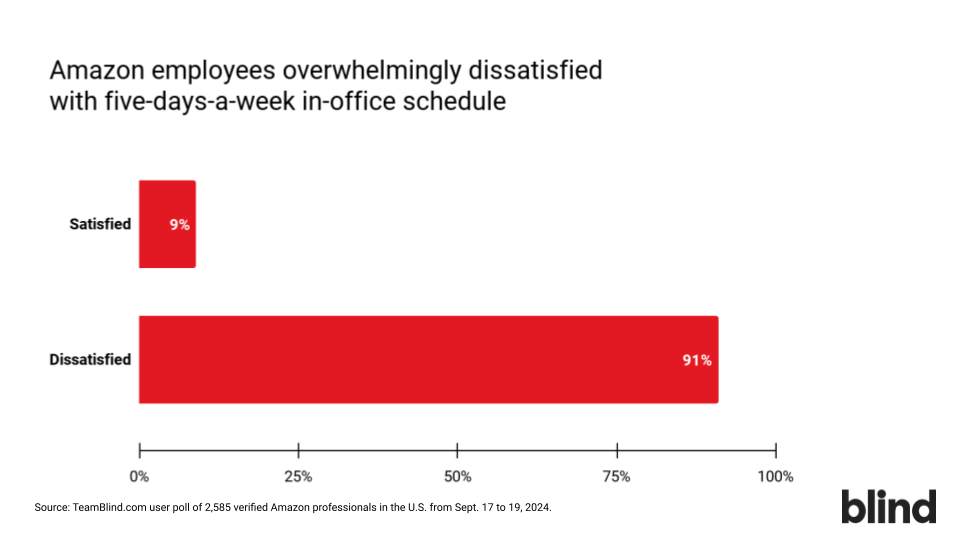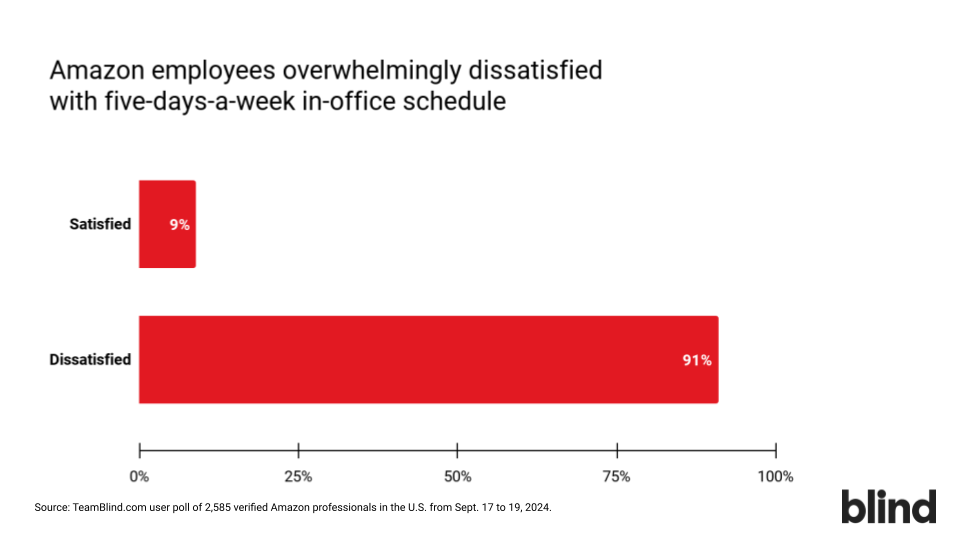‘We won’t know the full impact until mid-2025 when these changes are fully implemented’

Nearly three in four employees in Amazon are planning to quit as they express strong dissatisfaction over the company’s mandate to work five days a week starting next year.
In a survey among 2,585 Amazon professionals in the United States, anonymous job review site Blind discovered that 73% of employees are considering looking for a new job because of the mandate.
Another 80% said they know someone who is already looking for another job because of the new policy, while 32% said they know someone who has quit because of it.

Source: Blind
Amazon CEO Andy Jassy announced earlier this month that they are expecting employees to be back in the workplace five days a week starting January 2025 as they “believe that the advantages of being together in the office are significant.”
Jassy, in his announcement earlier this month, said they observed that in-office work makes it easier for teammates to learn, model, practice, and strengthen their culture.
It also makes collaborating, brainstorming, and inventing simpler and more effective, as well as makes teaching and learning more seamless, according to the CEO.
Dissatisfaction in Amazon’s workforce
But employees aren’t too pleased with the company’s order. An internal survey circulated by employees on Slack revealed that employees are “strongly dissatisfied” with the in-office mandate.
One verified Amazon professional said on Blind that their “morale for this job is gone, [I’m going to] totally check out till PIP (Performance Improvement Plan).”
 Source: Blind
Source: Blind
Who will likely leave Amazon?
Pavel Shynkarenko, founder of HR platform Mellow, predicts that higher-level employees who enjoy the perks from remote work would likely resign.
“It’s likely that high-level managers and highly skilled employees will be the ones to leave, especially those over 40 with families who benefit most from remote work,” Shynkarenko said in a statement to HRD.
Younger employees, such as Gen Zs, on the other hand, might stay put despite wanting to leave as jobs are currently hard to find, he added.
“We won’t know the full impact until mid-2025 when these changes are fully implemented,” Shynkarenko said.
Keep up with the latest news and events
Join our mailing list, it’s free!




